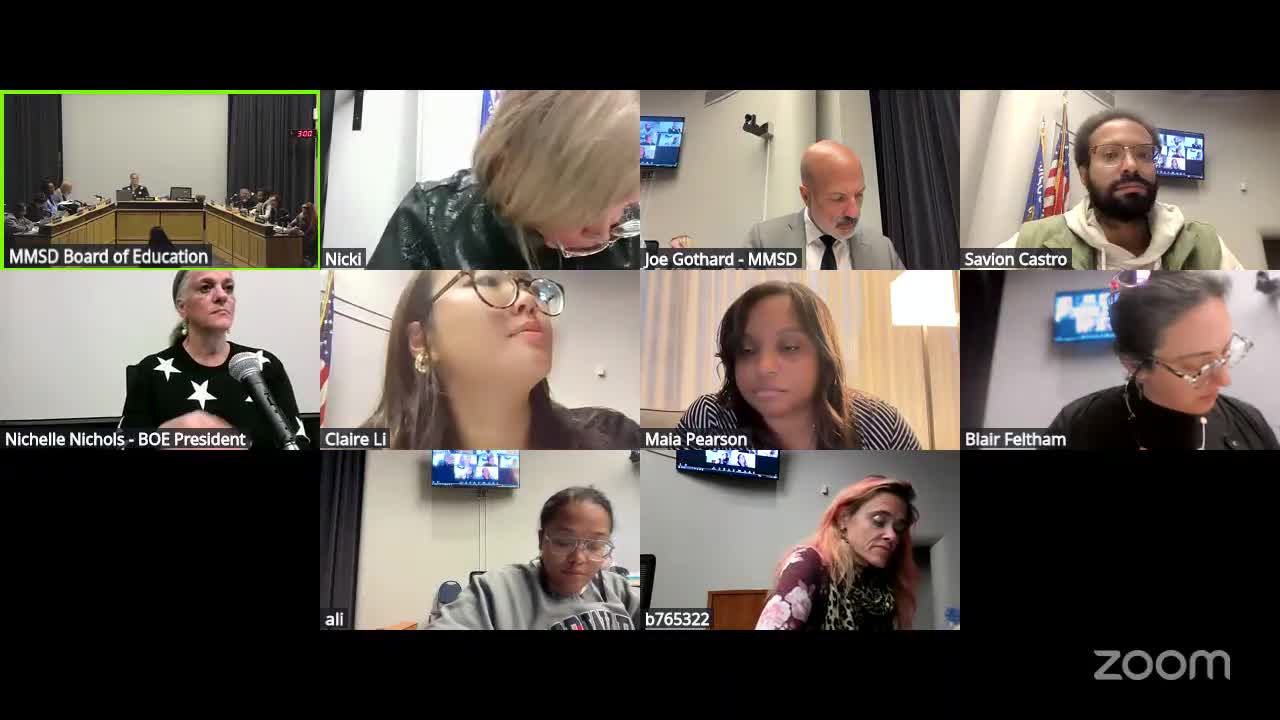Madison teachers urge board to fix salary compression as public speakers press for immediate action
Get AI-powered insights, summaries, and transcripts
Subscribe
Summary
Scores of current and former Madison Metropolitan School District teachers told the school board that compressed salary steps have left veteran educators paid at or below newer hires and urged the district to correct the salary schedule immediately to retain mentors and stabilize schools.
Scores of Madison Metropolitan School District teachers appealed to the school board Oct. 27 to correct what they called a persistent problem of salary compression that has left veteran teachers paid at levels similar to, or less than, newly hired teachers.
The public comment session — dominated by teachers, mentors and union leaders — included detailed personal accounts of missed salary steps, comparisons showing newer hires earning more than long-serving staff, and warnings that the district risks losing institutional knowledge and mentorship that supports new teachers.
"This is financially unfair and is a slap in the face to their professional expertise," said William McNeil Flowers, a social studies teacher at West High School, describing how pay scales for veteran teachers have fallen, in some cases, to near first-year salaries. "We need them. Our students need them, and they deserve to be paid fairly for their years of experience and expertise."
Several speakers described how salary calculations omitted years of service or applied part-time credit differently in past policies. Kate Schultz, English department chair at La Follette High School, said she has 23 years of service but is placed on a level that counts only 17 years. "Which of my six years of service don't matter?" she asked the board.
Andrea Mizzarelli, president of Madison Teachers Inc., told the board that Human Resources presented slides last September that documented the compression and outlined a proposed timeline and a budget amendment for 2025–26 to fix it. She said the correction was not included in the budget before the board that night. "These staff have waited long enough to fix the compression immediately," Mizzarelli said.
Other speakers offered specific figures and consequences. One teacher said the district had saved $4,500 a year from compression on her salary since 2017, totaling an estimated $36,000. Another estimated that correcting her own pay would require a multi-year adjustment to restore missed steps, plus implications for pension calculations.
Board members acknowledged the testimony during the budget discussion. Superintendent Dr. Gothard said administration was studying the scope of compression, options for how to correct it without creating new inequities, and the financial impact on the budget. "We're in that process right now," Gothard said, and staff would present findings to the operations work group and administration teams.
Board member VanderMeelen said the issue weighed heavily on her and declined to support the 2025–26 budget motion because it did not include a guaranteed remedy for compression; other board members voted to adopt the budget but acknowledged they had heard the public and would continue work on the issue.
The board did not adopt an immediate repair in the evening's budget vote; speakers and union leaders urged a fast timeline and urged the district to use available HR records to identify affected staff and compute corrections. Several teachers asked that any fix include clear rules about part-time credit, steps for previous service and protections for pension calculations.
If and when the board or administration returns with a formal proposal, teachers will likely press for specific action steps, a timetable and whether corrections will be phased or paid immediately, a district official said. Until then, teachers and union leaders continued to press for a near-term solution that they say is crucial to retention and to preserving mentorship structures that support new teachers.
